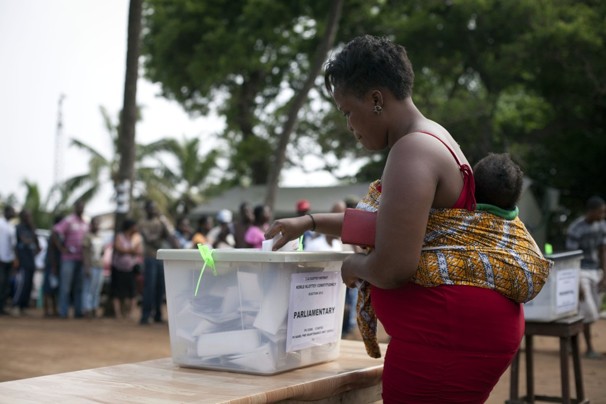Undecided voters outnumber NPP, NDC – Afrobarometer report
More than four in 10 Ghanaians aren’t taking sides yet in a presidential race if elections were held presently.
This outnumbers declared supporters of the governing party as well as its challenges, the latest Afrobarometer survey shows.
When asked in September-October 2019 how they would vote if a presidential election were held “tomorrow,” more Ghanaians said they would not vote or didn’t know or wouldn’t say how they would vote than declared for the governing New Patriotic Party (NPP) or the biggest opposition National Democratic Party (NDC).
The proportion of adult citizens who said they would not vote is the highest since 2008 and has increased by 6 percentage point between 2017 and 2019.
Among respondents who declared a preference, the NPP maintained a lead over the NDC, though its lead has shrunk by 15 points compared to survey responses in 2017. Without a clear understanding of undeclared voters, it is impossible to draw solid conclusions about a likely election outcome.
These findings suggest that a large chunk of the electorate is still waiting to be convinced, during the year remaining before Ghana’s 2020 presidential election, to vote for a specific candidate – or even to vote at all.
Key findings
When asked which party’s candidate they would vote for if presidential elections were held the following day, more than four in 10 Ghanaians (42%) said they would not vote (11%), did not know (12%), or refused to answer the question (19%) (Figure 1).

The proportion of Ghanaians who said they would not vote and who did not declare a voting intention is the highest recorded in Afrobarometer surveys going back to 2008 (Figure 2).

Youth were twice as likely as older citizens to say they would not vote (14% of those aged 18-35 vs. 7% of those aged 56 and above), as were urban residents (15%) compared to rural residents (7%) (Figure 3).

The proclivity to sit out the election was also considerably stronger among the highly educated (17% of those with post-secondary education) and relatively well-off citizens (13% among those experiencing no lived poverty) compared to the less educated (6% of those with no formal education) and poor citizens (4% among those experiencing high lived poverty).
Compared to 2017, the proportion of respondents who said they would vote for the NPP has dwindled by 15 percentage points (from 49% to 34%) while the share who said they would vote for the NDC has remained unchanged (22%) (Figure 4).





